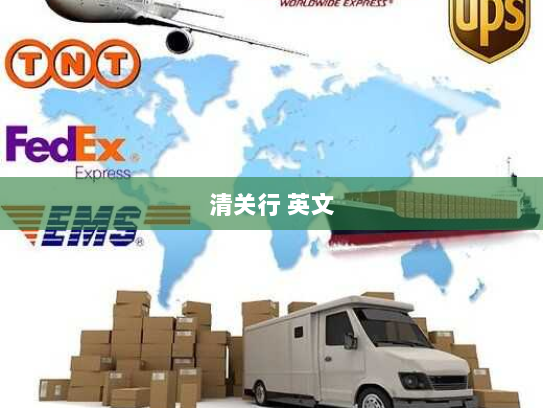
Customs Clearance Broker for Property Firms: Your Stress-Free Solution for Importing Building Equipment Imagine this. You're staring at a hefty customs invoice, your brand-new HVAC units are gathering dust (and daily storage fees) at the port, and the opening date for your luxury apartment complex is slipping further away. Why? A paperwork snag involving harmonized system codes that you didn't even know existed. For property developers and facility managers importing essential equipment, building materials, or specialized systems, navigating customs clearance feels like running through an ever-shifting maze. The delays are expensive, the rules are complex, and the wrong move can cost you thousands. This isn't just a shipping headache; it's a direct threat to your project timeline and budget. The Real Cost of Customs Delays for Property Managers Think beyond the immediate storage fees at the port (though those alone can climb into the hundreds per day, per container, according to recent Q1 2025 port authority reports). Consider the cascading effect:
- Idle Workers: Your construction crew, engineers, or installation specialists are ready, scheduled, and paid – but they have nothing to install. Payroll burns cash without progress.
- Missed Deadlines: Lease agreements for commercial spaces, move-in dates for residents, or crucial operational start dates for hotels or hospitals hang in the balance. Penalties or lost revenue mount quickly. A 2024 industry survey found project delays due to customs issues added an average of 12% to overall project costs for mid-sized developments.
- Unexpected Duties & Penalties: Misclassified goods can lead to underpayment of duties (resulting in fines and back payments) or overpayment (tying up your capital unnecessarily). Customs authorities globally are intensifying audits.
- Damaged Reputation: Partners, investors, and future clients expect reliability. Consistent delays due to logistics issues chip away at your professional standing. What Exactly Does a Customs Clearance Broker Do? Why Do You Need One? Think of them as your expert navigator through the complex world of international trade regulations. A licensed customs broker doesn't just move boxes; they manage the legal and regulatory process of getting your imported goods officially admitted into the country. Their core responsibilities include:
- Accurate Classification: Assigning the correct Harmonized System (HS) code to every single item you import. This code dictates the duty rate and eligibility for any special trade programs. Getting this wrong is the root of many delays and cost overruns.
- Document Preparation & Submission: Preparing and electronically filing the immense amount of required customs documentation (Customs Entry, Commercial Invoice review, Packing List verification, Bill of Lading processing, etc.) via government systems like ACE in the US.
- Duty & Tax Calculation: Precisely calculating all applicable duties, taxes (like GST/VAT), and fees based on the HS code, value, and origin.
- Communication Hub: Liaising directly with Customs and Border Protection (CBP) or equivalent authorities on your behalf to resolve any queries, examinations, or holds.
- Compliance Assurance: Ensuring every aspect of your import adheres to the latest regulations, including product safety standards, import restrictions, and anti-dumping rules. This is crucial for specialized building equipment or materials. Why "English-Speaking Customs Broker" is Non-Negotiable for Property Companies The language of international trade, especially customs procedures, is intricate and technical. Misinterpretations can be catastrophic. Partnering with a customs clearance broker whose primary operational language is English is critical for property importers:
- Crystal-Clear Communication: Complex regulatory nuances, urgent status updates, and detailed explanations of hold-ups need to be conveyed and understood instantly. No room for ambiguity exists when thousands of dollars and project timelines are at stake. You need direct, fluent communication with your broker's team handling your account.
- Accurate Document Translation & Understanding: While brokers handle foreign language documents, their core processing and advisory role for you must be in flawless English. You need to understand the process, the requirements, and any actions needed from your end without anything getting lost in translation. Your internal team must grasp critical instructions quickly.
- Swift Problem Resolution: When customs flags an issue, speed is essential. Explaining the situation clearly to you and advocating effectively with authorities requires precise, nuanced English communication. A broker struggling with language fluency becomes a bottleneck. A recent analysis of customs holds showed clearances resolved 40% faster when brokers communicated seamlessly in the importer's primary language.
- Building Trust Through Understanding: You need confidence that your broker fully comprehends your specific property industry needs – the pressure points, the types of equipment (boilers, elevators, curtain walls, smart building systems), and the critical nature of timelines. This deep understanding is fostered through effortless conversation. Finding the Right Customs Clearance Partner: Key Questions for Property Importers Don't just pick the cheapest option. Your customs broker is a strategic partner. Ask these vital questions:
- Experience with Property Sector Imports? Do they regularly handle construction machinery, HVAC systems, generators, elevators, specialized cladding materials, or smart building components? Industry-specific knowledge is invaluable. They should proactively ask about COO certificates, EPA forms for regulated equipment, or FCC declarations for electronics.
- Licensed & Insured? Verify their license is active and in good standing with the relevant national customs authority (e.g., CBP in the US, CBSA in Canada, HMRC in the UK). Ensure they carry professional liability insurance.
- Technology Capabilities? Do they offer a real-time online portal where you can track shipment status, view documents, and monitor clearance progress? Automated updates? Digital document submission? Efficient brokers leverage technology heavily.
- Fee Transparency? Understand their fee structure completely. Are there hidden charges? How do they handle duties and taxes (do they require prepayment or offer bonded release)? Get a clear breakdown.
- References & Reviews? Ask for testimonials or case studies, especially from other property developers or facility management companies. Look for online reviews focused on reliability and communication.
- English Proficiency Guarantee? Specifically confirm that your dedicated account team operates fluently in English. Can you easily reach someone who understands your urgency? Test their responsiveness before committing. Integrating Your Customs Broker with Your Property Logistics Strategy Your broker shouldn't be an afterthought; they need to be embedded in your supply chain planning. Here's how:
- Early Engagement: Contact your broker before the goods are shipped. Provide detailed packing lists, commercial invoices, and product specifications upfront. This allows them to pre-classify items, identify potential red flags (permits, special certifications needed for building materials or equipment), and advise on optimal shipping terms (Incoterms® 2025) to streamline the process. For instance, using DDP (Delivered Duty Paid) shifts the clearance burden to the supplier, but requires a reliable supplier.
- Complete Information Sharing: Provide absolutely everything – manufacturer details, material composition (especially for wood products needing phytosanitary certificates), intended use of the equipment, and full value breakdown. Hiding information to try and reduce duties is illegal and will backfire spectacularly.
- Empower Your Broker: Give them the authority to act decisively on your behalf within agreed parameters. When customs requests additional information, your broker needs to be able to respond promptly without chasing you for every minor signature. Establish clear escalation protocols for major issues.
- Regular Communication: Schedule regular updates, especially for large or complex shipments. A proactive broker keeps you informed before problems arise. Discuss peak seasons for your projects to ensure they have bandwidth. Looking Ahead: Customs Trends Impacting Property Importers Staying informed helps you anticipate challenges:
- Increased Scrutiny on Valuation & Origin: Customs authorities globally are intensifying audits on the declared value of goods and verifying Country of Origin to ensure correct duty application (especially under trade agreements like USMCA or various FTAs). Your broker must meticulously document origin and value.
- Focus on Forced Labor Compliance: Regulations like the U.S. Uyghur Forced Labor Prevention Act (UFLPA) require extensive due diligence on supply chains, particularly for materials like certain minerals or components. Property firms importing fixtures, finishes, or solar components need robust traceability. Your broker should guide you on evidence requirements.
- Sustainability Declarations: Expect growing requirements for environmental impact statements or declarations related to carbon footprint for certain building materials or large equipment imports.
- Digitalization Acceleration: Paperless processes are becoming the norm globally. Ensure your broker is fully integrated with national customs electronic platforms and offers you efficient digital tools. Stop Letting Customs Derail Your Property Projects The frustration of delayed equipment imports, ballooning port fees, and stressed project managers is avoidable. You didn't get into the property business to become a customs expert. Partnering with a specialized, fluent, English-speaking customs clearance broker transforms this critical function from a high-risk burden into a streamlined, predictable part of your operations. They become your shield against delays, your advocate with authorities, and your key to maintaining project momentum and profitability. Invest the time upfront to find the right partner – one with proven expertise in property management customs clearance and impeccable English communication skills. The cost of the broker is a small fraction compared to the massive expense of just one major customs delay. Regain control, protect your timelines, and import your essential building equipment with confidence. Case in Point: Sunnyvale Residential faced a 3-week delay importing European elevator components due to an incorrect HS code submitted by their previous forwarder. The delay resulted in over $15,000 in port demurrage and labor standby costs, plus penalties for missing a critical installation window. After switching to a broker specializing in property imports with clear English protocols, similar subsequent shipments cleared within 48 hours consistently. 以上就是由"奇迹购跨境物流平台"原创的《Customs Clearance Broker for Property Firms: Your Stress-Free Solution for Importing Building Equipment》解析,立即访问官网获取定制化清关方案,确保您的设备准时抵达工地。

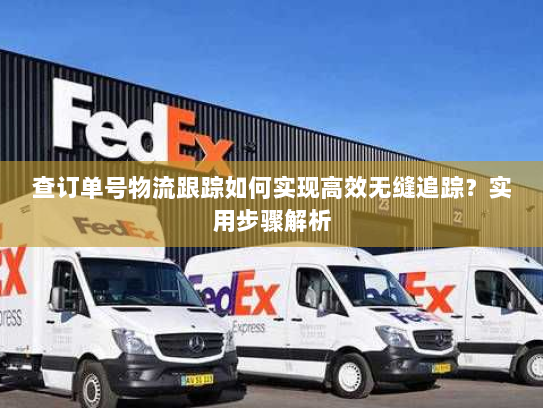

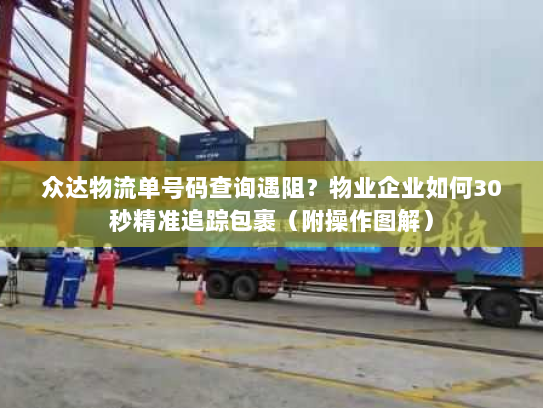
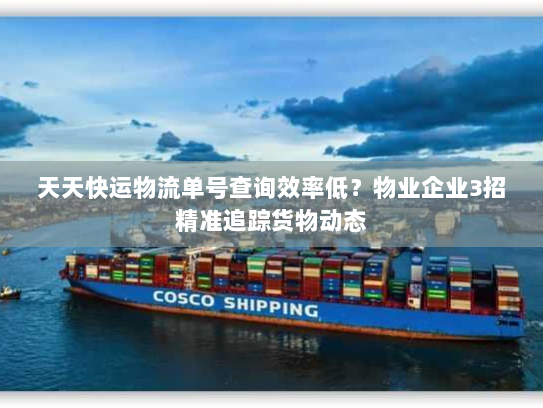
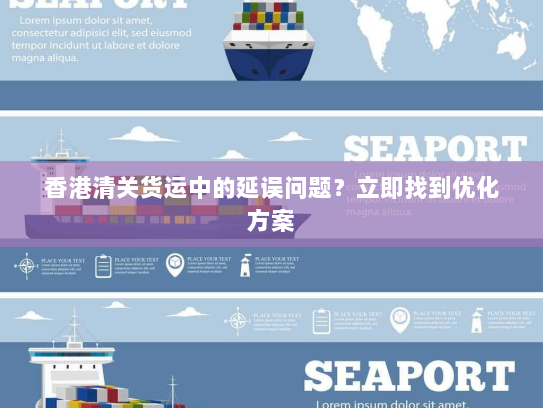
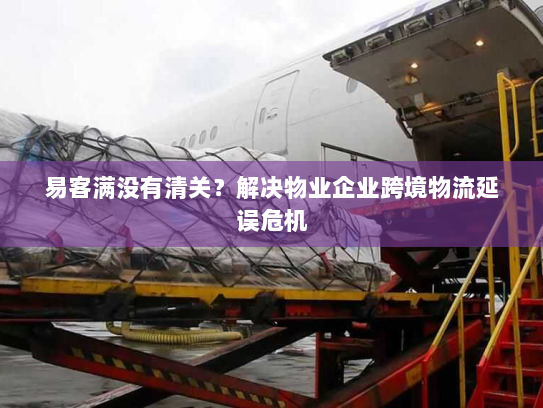
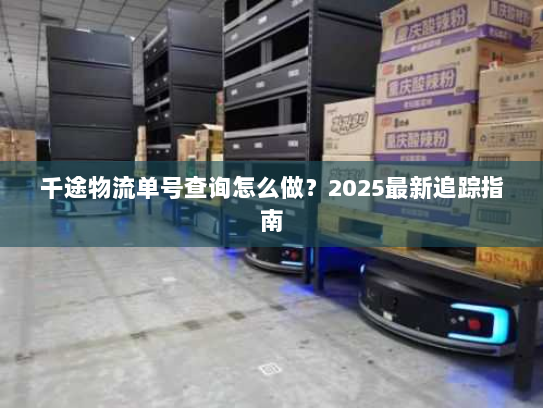


发表评论
发表评论: